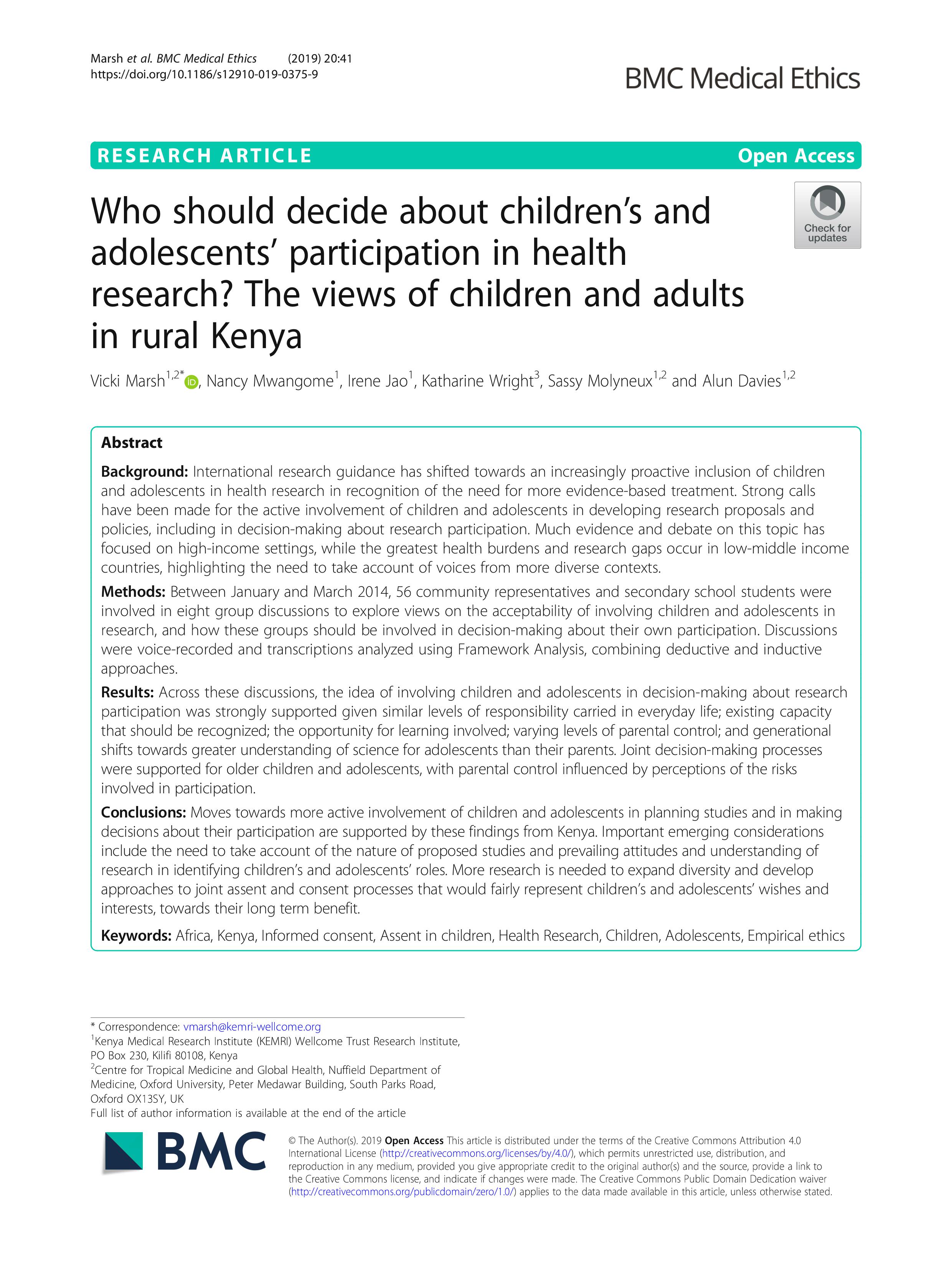This paper from BMC Medical Ethics explores how researchers and research centres can actively involve children and young people in health research activities and in the development of research proposals. They used group discussions with community members and schools students in rural Kenya to explore views on the topic.
International research guidance increasingly encourages the active involvement of children and adolescents in developing research proposals and policies, including in decision-making about research participation. Much of the evidence and debate around the topic has come from high-income countries, but with the greatest health burdens and research gaps occuring in low-middle income countries, there is a need to take account of views from other contexts.
This study engaged community members and secondary school students in eight group discussions to explore views on the acceptability of involving children and adolescents in research, and how these groups should be involved in decision-making about their own participation. Discussions were analysed using Framework Analysis, combining deductive and inductive approaches. Across the discussions, the idea of involving children and adolescents in decision-making about research participation was strongly supported. Joint decision-making processes were supported for older children and adolescents, with parental control influenced by perceptions of the risks involved in participation.
The paper concludes that the move towards more active involvement of children and young people in planning studies and in making decisions about their participation is supported by the study's findings. They describe important emerging considerations including the need to take account of the nature of proposed studies and exsisting attitudes and understanding of research locally in identifying children’s and young people's roles. The authors call for more research to expand diversity and develop approaches to joint assent and consent processes that would fairly represent children’s and adolescents’ wishes and interests and be to there benefit.
This work is licensed under a Creative Commons Attribution 4.0 International License



Please Sign in (or Register) to view further.